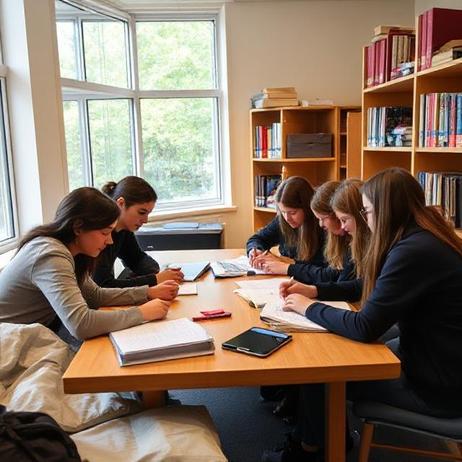Introduction
For parents evaluating secondary school options, selecting a boarding school offering an International Baccalaureate Diploma Programme (IB DP) can be a significant decision. The IB program is recognised worldwide for its rigorous curriculum and emphasis on inquiry, global awareness, and university preparation. In 2025, interest in boarding schools offering IB programs continues to grow, making it essential for families to understand what this route involves.
This article explores the advantages of boarding schools with IB programs, how to evaluate them, key questions to ask, and illustrative examples of schools. It is designed for parents, students, and educators seeking reliable, up-to-date guidance.
What Is the IB Program and Why Select It at a Boarding School?
Understanding the IB Program
The IB Organization authorises schools to deliver its programmes, including the Diploma Programme (DP) for students aged 16–19. Schools must meet strict global standards for curriculum quality and student support. International Baccalaureate®
According to the IB website, an IB World School is one that has been authorised to deliver one or more of the IB programmes. ibyb.org
Why Choose a Boarding School Offering the IB Program?
Boarding schools offering IB programs combine the residential environment—often with a diverse, international student body—with the academic depth of the IB Diploma. Key benefits include:
A structured residential setting that supports students’ learning, social development, and independence.
Access to qualified faculty experienced with the IB pedagogy (which emphasises critical thinking, research, and global context).
A strong university-preparation focus; many top boarding schools with IB programs report high diploma-completion rates. For example, George School states its IB diploma completion rate is in the mid-90 percent. georgeschool.org
Opportunities for students from different nationalities, fostering cultural awareness and peer-learning in the boarding community.
In short, when a boarding school offers the IB program, the combination of academic challenge and residential support can make it a compelling option for students preparing for globalised higher education.
What to Look for When Evaluating Boarding Schools with IB Programs
Here are critical factors to assess when choosing a boarding school offering an IB program:
Accreditation and Track Record
Confirm the school is authorised by the IB Organisation and ask for its IB Diploma results (average points, percentage achieving the diploma).
Check how long the boarding school has offered the IB program; longer experience often means better support systems. For example, George School has offered IB for 39 years.
Examine university matriculation: Are students admitted to a range of strong universities?
Residential Environment & Student Support
How is the boarding programme structured? Are residential staff trained in working with IB students?
What co-curricular and service opportunities align with the IB’s “Creativity, Activity, Service (CAS)” requirement?
What is the boarding community like in terms of diversity, student-to-resident-staff ratio, and pastoral care?
Curriculum and Subject Availability
The IB Diploma requires students to study six subject groups, complete an Extended Essay, and engage in Theory of Knowledge. Does the school offer a wide choice of courses (languages, sciences, humanities, arts)?
Does the school offer the Middle Years Programme (MYP) or Primary Years Programme (PYP) if your child is younger? This ensures continuity.
How well does the school's calendar, class size and faculty expertise support IB teaching and assessment?
College and Career Readiness
Does the school provide counselling specific to IB students for university applications (including international universities)?
What support exists for students transitioning from IB to university?
Are credits or advanced standing available for IB students at universities the school feeds?
Cost and Financial Aid
Boarding schools offering IB programs may command premium tuition and boarding fees. Determine cost plus boarding, travel, and other incidental expenses.
Ask about scholarships or financial aid available to boarding students in the IB program.
Comparison Table: Key Features of Boarding Schools Offering IB Programs
| Feature | What to ask | Why it matters |
|---|---|---|
| IB Authorisation & Results | “What is your average diploma points score?” | Indicates quality of IB delivery |
| Boarding Student Integration | “How are IB students supported in the residence?” | Ensures academic and residential life work together |
| Course Offerings | “Which IB subjects and languages are offered?” | Broader options support student interest & strength |
| University Matriculation | “Where do recent graduates matriculate?” | Shows where IB diploma leads |
| Cost & Scholarships | “What is the full cost and what aid is offered?” | Understand total investment and accessibility |
Examples of Boarding Schools with IB Programs (2025)
Here are illustrative examples of boarding schools offering IB programs:
Cheshire Academy (Connecticut, USA) is described as the only independent boarding school in the state to offer the full IB Diploma Programme.
Villiers School (Ireland) is the only boarding school in Ireland authorised to offer the IB Diploma Programme. villiers-school.com
UWC (colleges worldwide) offers the IB Diploma or IB Career-related Programme in its global boarding schools for students aged 16–19. United World Colleges
These examples show geographic and institutional variety in schools offering IB programs with boarding options—helping families evaluate options globally if relevant.
Recommendations for Parents and Students
Start early: IB boarding application deadlines may be earlier than standard boarding schools.
Visit or talk virtually: Spend time (in person if possible) exploring the boarding house, meet current IB students, ask about daily life.
Prepare academically: IB is rigorous. Students should have strong foundations in reading, writing, and time-management.
Consider personal fit: Boarding life and IB study both demand resilience and independence—identify whether your child is ready for both.
Explore financial commitment: Understand full cost (tuition + boarding + travel + materials) and ask about scholarships or aid.
Review post-school outcomes: Where graduate IB students go for university, how well they adapt.
Ask about programme changes: Some schools are evolving how they deliver IB; ensure the current offering aligns with your expectations.
2025 Trends to Watch
Rising tuition and boarding costs in many regions are impacting affordability of boarding schools offering IB programs.
Some national systems (especially in the UK and elsewhere) are reassessing funding for IB programmes, which may affect future availability. thetimes.com
Growing emphasis on global citizenship and intercultural competence means schools offering IB programs and boarding experience are increasingly valued.
More schools are offering dual pathways: IB alongside national curricula, giving families choice.
Summary
Choosing a boarding school that offers an IB program is a strategic decision for families seeking rigorous academics and an international-minded residential experience. By focusing on accreditation, boarding support, curriculum breadth, university outcomes and cost, parents and students can identify strong options. The boarding schools illustrated above serve as useful benchmarks. As you navigate your application, remember that the best fit is not simply the name of a programme—it is how the boarding environment, the IB curriculum and your child’s goals align.















